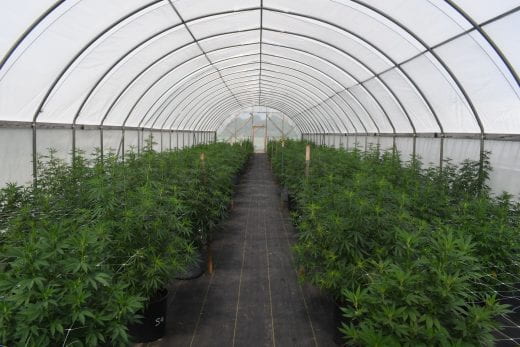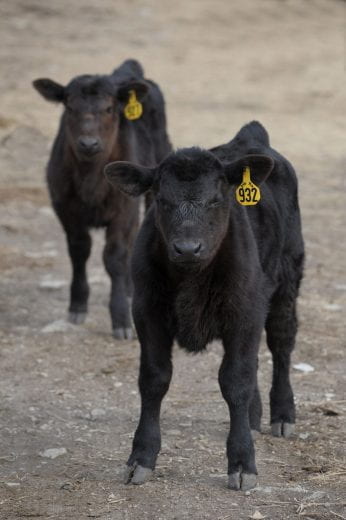 Welcome to Better Kansas. Where every Thursday we shed light on events, resources and other information designed to make your life, businesses, communities and state better. Share on social media and don’t forget to hit subscribe! – Mary Lou Peter mlpeter@ksu.edu
Welcome to Better Kansas. Where every Thursday we shed light on events, resources and other information designed to make your life, businesses, communities and state better. Share on social media and don’t forget to hit subscribe! – Mary Lou Peter mlpeter@ksu.edu
Better Living, Better Communities
 FALL IS MY FAVORITE TIME OF YEAR for a variety of reasons and one of them is the abundance of all things apple at the grocery store, farmer’s markets and roadside stands. Apple pie, applesauce, or a fresh apple on its own, it’s all good. Whether you prefer the sweetness of Braeburns or the tartness of Granny Smiths, many varieties can be stored successfully for months under the right conditions. A recent Horticulture Newsletter provides a guide to how long different varieties hold up well under the proper conditions. Just don’t make my mistake and forget that they’re in that bottom drawer behind other things! If you don’t want to store them fresh and whole, you can always freeze or can them or make apple butter or jelly. Take a look at Preserve it Fresh, Preserve it Safe: Apples for how-to steps and recipes. Now if only we could do something about the shortening daylight that comes this time of year ☹.
FALL IS MY FAVORITE TIME OF YEAR for a variety of reasons and one of them is the abundance of all things apple at the grocery store, farmer’s markets and roadside stands. Apple pie, applesauce, or a fresh apple on its own, it’s all good. Whether you prefer the sweetness of Braeburns or the tartness of Granny Smiths, many varieties can be stored successfully for months under the right conditions. A recent Horticulture Newsletter provides a guide to how long different varieties hold up well under the proper conditions. Just don’t make my mistake and forget that they’re in that bottom drawer behind other things! If you don’t want to store them fresh and whole, you can always freeze or can them or make apple butter or jelly. Take a look at Preserve it Fresh, Preserve it Safe: Apples for how-to steps and recipes. Now if only we could do something about the shortening daylight that comes this time of year ☹.
WHILE WE’RE ON THE SUBJECT OF FALL, it’s about this time of year that we sometimes have outbreaks of oak leaf itch mites (known to the scientists as pyemotes herfsi). Once you’ve been bitten, you won’t forget them. They aren’t a problem every year, but in years and locations when they are, the bites, which are usually found on your upper body, are itchy and sometimes painful. And they can last a surprisingly long time! A maddening thing about these tiny creatures which are nearly invisible to the naked eye, is that you typically don’t know that you’ve been bitten until hours later or the next day. Take a look at the updated Oak Leaf Itch Mite fact sheet for pictures and more information, including where they live and why it’s so difficult to avoid them. An internet search just led me to a Wall Street Journal article “The Invisible Itch Mite Will Make You Nostalgic for Mosquitoes.” Do tell!
 EVER HAD THAT EXPERIENCE WHERE YOU’RE STARTING A NEW JOB and had to pick a health insurance plan? So many big decisions in such a short amount of time! Or maybe you realized you don’t know what your plan covers … and what it doesn’t. Life is so complicated! Check out Health Insurance Smarts – Health Insurance 102 for information about choosing a plan, what terms such as coinsurance and deductibles mean, and things to consider when thinking about insurance costs.
EVER HAD THAT EXPERIENCE WHERE YOU’RE STARTING A NEW JOB and had to pick a health insurance plan? So many big decisions in such a short amount of time! Or maybe you realized you don’t know what your plan covers … and what it doesn’t. Life is so complicated! Check out Health Insurance Smarts – Health Insurance 102 for information about choosing a plan, what terms such as coinsurance and deductibles mean, and things to consider when thinking about insurance costs.
Better Farming, Ranching and Gardening
 KANSAS EXTENSION MASTER GARDENERS DONATED NEARLY 106,000 POUNDS (53 tons) of fresh fruits and vegetables to food pantries last year to help feed their communities, and are well on their way to an equally generous season this year! That’s one of the ways extension works: university scientists conduct research, in this case on fresh produce. Those specialists share that research-based information with volunteers in the Kansas Extension Master Gardener program who in turn, educate the public by speaking to community groups, participating in garden shows, or growing and maintaining demonstration gardens. Those gardens give people like you and me a chance to see what we can grow at our own homes. From Wyandotte to Ellis and Sedgwick to Harvey counties, Kansas EMGs are busy across the state sharing their knowledge of flowers, fruits and vegetables. Interested? Check with your county or district extension office to learn about the opportunities.
KANSAS EXTENSION MASTER GARDENERS DONATED NEARLY 106,000 POUNDS (53 tons) of fresh fruits and vegetables to food pantries last year to help feed their communities, and are well on their way to an equally generous season this year! That’s one of the ways extension works: university scientists conduct research, in this case on fresh produce. Those specialists share that research-based information with volunteers in the Kansas Extension Master Gardener program who in turn, educate the public by speaking to community groups, participating in garden shows, or growing and maintaining demonstration gardens. Those gardens give people like you and me a chance to see what we can grow at our own homes. From Wyandotte to Ellis and Sedgwick to Harvey counties, Kansas EMGs are busy across the state sharing their knowledge of flowers, fruits and vegetables. Interested? Check with your county or district extension office to learn about the opportunities.
 IT’S TRUE, THERE’S A DIFFERENT SCENT IN THE AIR at a few K-State research centers around the state where studies of industrial hemp are in their first year. The 2018 Farm Bill cleared a path for farmers to explore the possibility of growing industrial hemp, which can be used in everything from CBD oil to paper products and rope, plus more. Though still in the beginning stages, the possibilities couldn’t come at a more welcome time with the prices of some crops traditionally grown in Kansas depressed for several years. Part of K-State’s role in industrial hemp research is to help determine which varieties grow best in different parts of the state and how irrigated versus non-irrigated plots perform. If found to be a good option for farmers, industrial hemp will likely be an alternative crop to be used in a rotation with more traditional crops such as corn or wheat. Check out a video.
IT’S TRUE, THERE’S A DIFFERENT SCENT IN THE AIR at a few K-State research centers around the state where studies of industrial hemp are in their first year. The 2018 Farm Bill cleared a path for farmers to explore the possibility of growing industrial hemp, which can be used in everything from CBD oil to paper products and rope, plus more. Though still in the beginning stages, the possibilities couldn’t come at a more welcome time with the prices of some crops traditionally grown in Kansas depressed for several years. Part of K-State’s role in industrial hemp research is to help determine which varieties grow best in different parts of the state and how irrigated versus non-irrigated plots perform. If found to be a good option for farmers, industrial hemp will likely be an alternative crop to be used in a rotation with more traditional crops such as corn or wheat. Check out a video.
 IF YOU’RE IN THE LIVESTOCK PRODUCTION BUSINESS and want to know about upcoming events, research results and more, take a look at the monthly News from KSU Animal Sciences newsletter. The September 2019 edition has information about educational events for beef and swine producers, meat processors and a program specifically for youth. It also includes management tips for running your business, safety tips for those harvesting silage, research results and other topics.
IF YOU’RE IN THE LIVESTOCK PRODUCTION BUSINESS and want to know about upcoming events, research results and more, take a look at the monthly News from KSU Animal Sciences newsletter. The September 2019 edition has information about educational events for beef and swine producers, meat processors and a program specifically for youth. It also includes management tips for running your business, safety tips for those harvesting silage, research results and other topics.
—
For more resources and activities, contact the K-State Research and Extension office in your area. Check out our other blogs and subscribe to our weekly emails here: https://www.ksre.k-state.edu/news/blogs/
